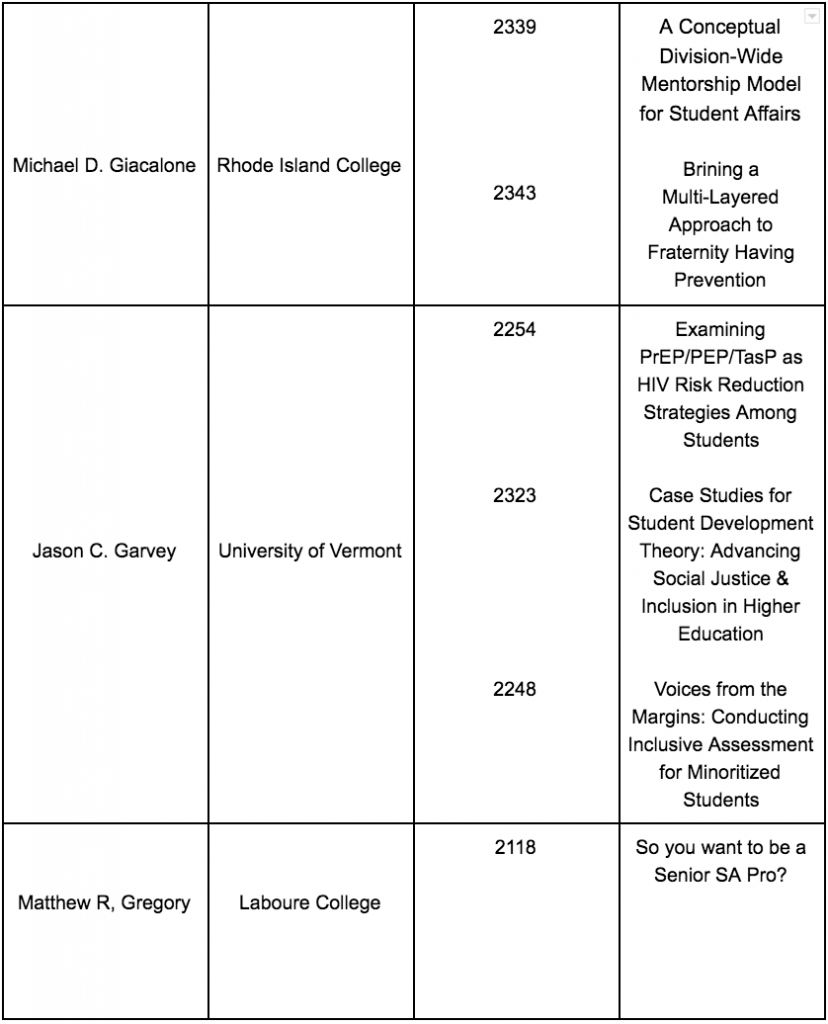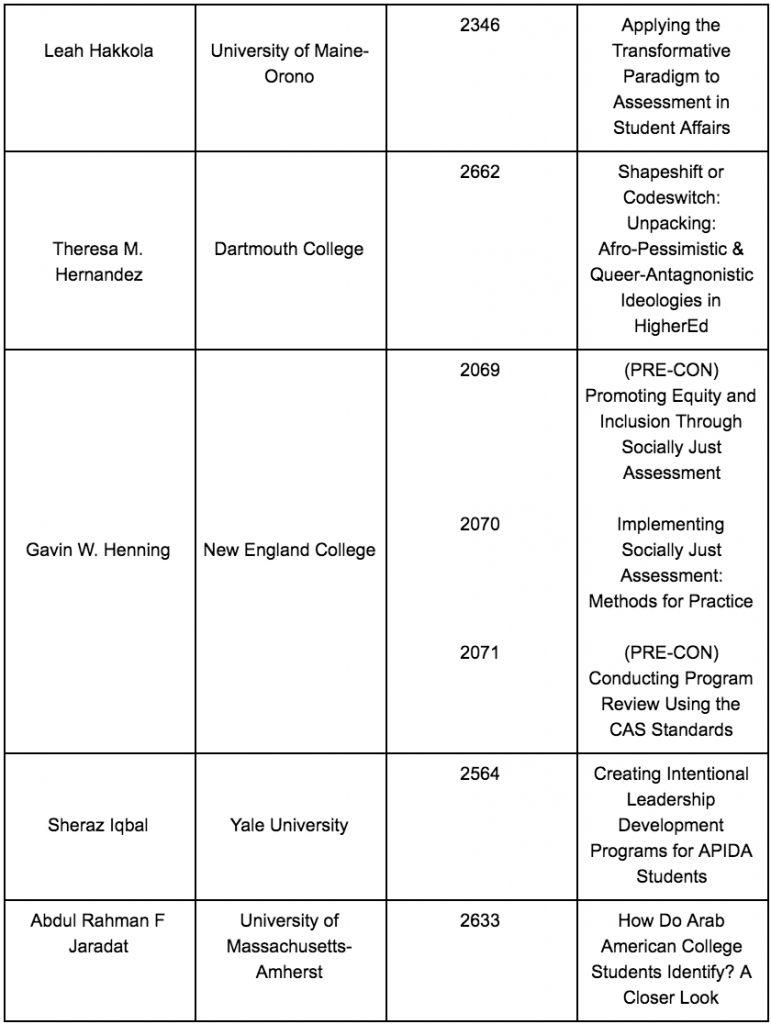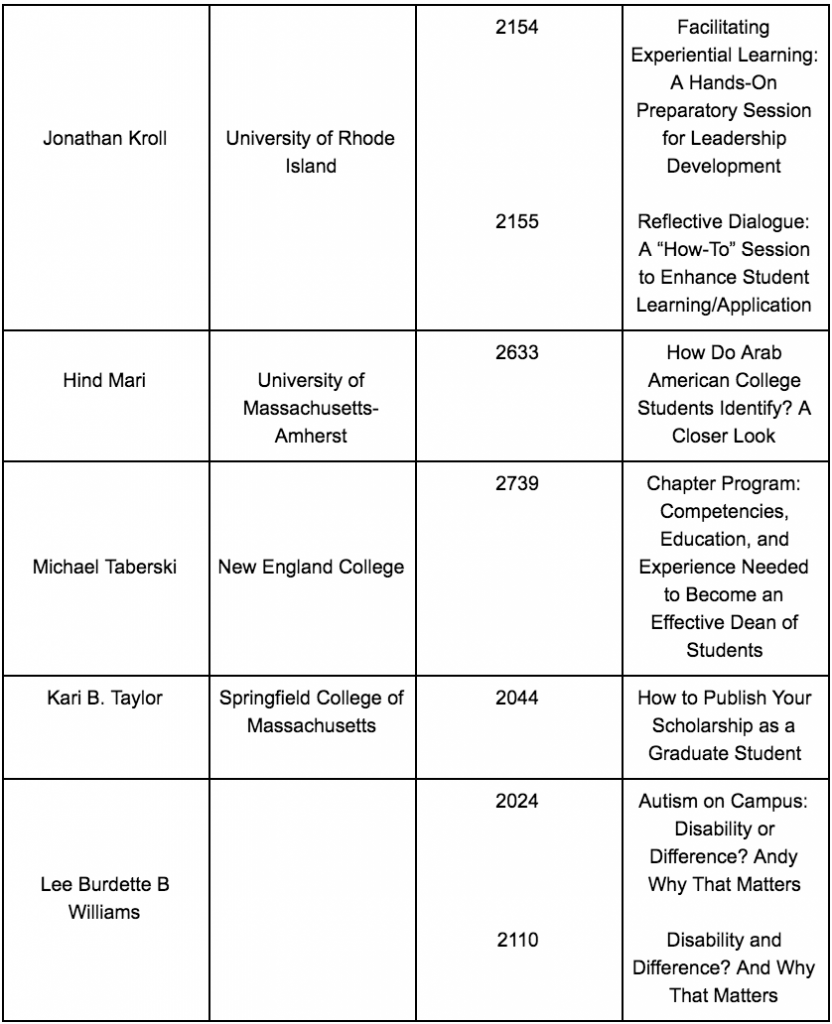ACPA 2020 Professional Spotlight – Gavin Henning
By Gavin Henning
Gavin Henning is a Professor of Higher Education at New England College in New Hampshire where he directs the Master of Science in Higher Education Administration and Doctorate of Education programs. Gavin is a past president of the Council for the Advancement of Standards in Higher Education (CAS) and is a past president of ACPA – College Student Educators International. He has over 20 years’ experience in higher education assessment and institutional research and frequently consults and presents regionally, nationally, and internationally on the topic. His scholarship includes over 90 peer-reviewed presentations and over 90 invited presentations and keynotes regarding assessment. In addition, he has published articles and books on assessment including Student Affairs Assessment: Theory and Practice with Darby Roberts that serves as the foundational text for assessment courses in many higher education graduate programs. Gavin earned his Ph.D. in Leadership and Policy Studies from the University of New Hampshire. Here are is an overview of sessions that he will be facilitated.
CAS Sessions at ACPA20
By Gavin Henning
The Council for the Advancement of Standards in Higher Education (CAS) is a consortium of 40 higher education associations whose goal is to develop standards of professional practice in the field. These standards are typically for co-curricular functional areas such as academic advising, housing and residence life, student activities, and orientation programs, although some of the standards are for office that may exist under academic affairs. CAS also develops cross-functional frameworks to address issues that transcend any one campus department including the first-year experience and addressing behavioral concerns. The standards and frameworks are primarily used for program development and self-assessment but may also be used for other purposes such as benchmarking and even individual certification. In many ways, the CAS Standards and Frameworks provide the foundation for practice in the field of higher education and student affairs.
I’ve been fortunate to be involved with CAS since 2012, when I was invited to represent ACPA – College Student Educators International. Each member organization may have up to two representatives. During my time on CAS, I’ve served as Member-at-Large for Resource Development, President, and now Past-President.
As part of our responsibilities as representatives from ACPA on CAS, Tim Gordon and I facilitate workshops on CAS at the annual convention. This year, Tim and I are co-facilitating a full-day pre-conference session on implementing a CAS self-study as well as three concurrent sessions on the following topics: Evaluating Program Effectiveness and Learning with CAS, Do It Yourself CAS Self-Study, and CAS Frameworks for Assessing Multifunctional Initiatives.
Socially Just Assessment
By Gavin Henning
An emerging topic in higher education assessment is socially just assessment. This refers to ensuring that assessment is implemented in a socially just way, but also using assessment as a vehicle for social justice. A colleague, Anne Lundquist, and I began talking about this topic two years ago during dinner at the 2018 NASPA annual conference. We were discussing a recent paper on culturally responsive assessment. Anne was telling me about a session she was doing the 2018 ACPA Annual Conference the following week on bias-free assessment. As our conversation continued, we discussed an idea of socially just assessment which was broader than both bias-free assessment and culturally responsive assessment. Anne invited me to co-present her session on bias-free assessment and we continued our discussion. Since that initial dialogue, Anne and I have developed a framework for socially just assessment that we have written and presented on individually and as a team at regional and national conferences. Socially just assessment aligns with ACPA’s values and specifically its strategic imperative for racial justice and decolonization.
Anne and I are offering a ½ pre-convention on social justice assessment at ACPA20 as well as an extended session on the topic. Those interested in the topic can also listen to podcasts with thought leaders on the topic.





